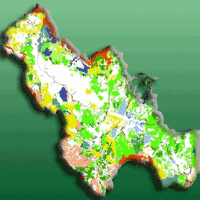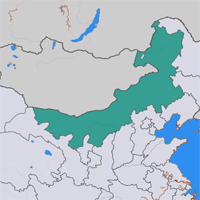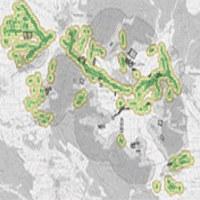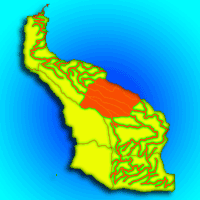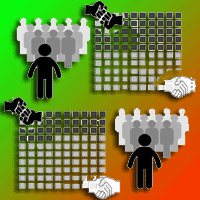
Spatial information and participation in socio-ecological systems: experiences, tools and lessons learned for land-use planning
Daniele La Rosa (1), Carsten Lorz (2) , Hannes Jochen König (3), Christine Fürst (4)
iForest - Biogeosciences and Forestry, Volume 7, Issue 6, Pages 349-352 (2014)
doi: https://doi.org/10.3832/ifor0093-007
Published: May 19, 2014 - Copyright © 2014 SISEF
Editorials
Collection/Special Issue: RegioResources21
Spatial information and participation of socio-ecological systems: experiences, tools and lessons learned for land-use planning
Guest Editors: Daniele La Rosa, Carsten Lorz, Hannes Jochen König, Christine Fürst
Abstract
The special issue “Spatial Information and participation of socio-ecological systems: experiences, tools and lessons learned for land-use planning”, focuses on a framework for information used in planning and participation processes for socio-ecological systems at different scales and contexts. The papers presented in the SI focus on three major questions: (1) How should we make use of spatial information for planning at different scales and contexts? (2) How should we share information among stakeholders and decision makers in land-use planning? (3) How can we communicate scientific knowledge to achieve effective decisions? The papers of this SI contribute original perspectives on how spatial information can be structured, used and communicated by/among different actors of land planning processes, creating more actionable scientific knowledge and effective related decision making.
Keywords
Participation, Land-use Planning, Stakeholders, Decision-making
Authors’ Info
Authors’ address
Department of Architecture, University of Catania (Italy)
Forest Pedology, Geology and Site Ecology, University of Applied Sciences Weihenstephan-Triesdorf, Woods and Forestry (Germany)
Leibniz Centre for Agricultural Landscape Research - ZALF (Germany)
Center for Development Research - ZEF, University of Bonn (Germany)
Corresponding author
Paper Info
Citation
La Rosa D, Lorz C, König HJ, Fürst C (2014). Spatial information and participation in socio-ecological systems: experiences, tools and lessons learned for land-use planning. iForest 7: 349-352. - doi: 10.3832/ifor0093-007
Academic Editor
Marco Borghetti
Paper history
Received: Mar 11, 2014
Accepted: Mar 12, 2014
First online: May 19, 2014
Publication Date: Dec 01, 2014
Publication Time: 2.27 months
Copyright Information
© SISEF - The Italian Society of Silviculture and Forest Ecology 2014
Open Access
This article is distributed under the terms of the Creative Commons Attribution-Non Commercial 4.0 International (https://creativecommons.org/licenses/by-nc/4.0/), which permits unrestricted use, distribution, and reproduction in any medium, provided you give appropriate credit to the original author(s) and the source, provide a link to the Creative Commons license, and indicate if changes were made.
Web Metrics
Breakdown by View Type
Article Usage
Total Article Views: 55968
(from publication date up to now)
Breakdown by View Type
HTML Page Views: 47109
Abstract Page Views: 3206
PDF Downloads: 4237
Citation/Reference Downloads: 18
XML Downloads: 1398
Web Metrics
Days since publication: 4298
Overall contacts: 55968
Avg. contacts per week: 91.15
Citation Metrics
Article Citations
Article citations are based on data periodically collected from the Clarivate Web of Science web site
(last update: Mar 2025)
Total number of cites (since 2014): 8
Average cites per year: 0.67
Publication Metrics
by Dimensions ©
Articles citing this article
List of the papers citing this article based on CrossRef Cited-by.
References
Pimp your landscape - a generic approach for integrating regional stakeholder needs into land use scenario design and sustainable management support. Ecology and Society 15 (3): 34-59.
Gscholar
Planning in the public domain: from knowledge to action. Princeton University Press, Princeton, NJ, USA, pp. 501.
Gscholar
Geographic information systems for group decision making-towards a participatory, geographic information science. Taylor & Francis, New York, USA, pp. 273.
Gscholar
Regional impact assessment of land use scenarios in developing countries using the FoPIA approach: Findings from five case studies. Journal of Environmental Management 127 (suppl): S56-S56.
CrossRef | Gscholar
A web-based planning support tool for sediment management in a meso-scale river basin in Western Central Brazil. Journal of Environmental Management 127: S15-S23.
Gscholar

